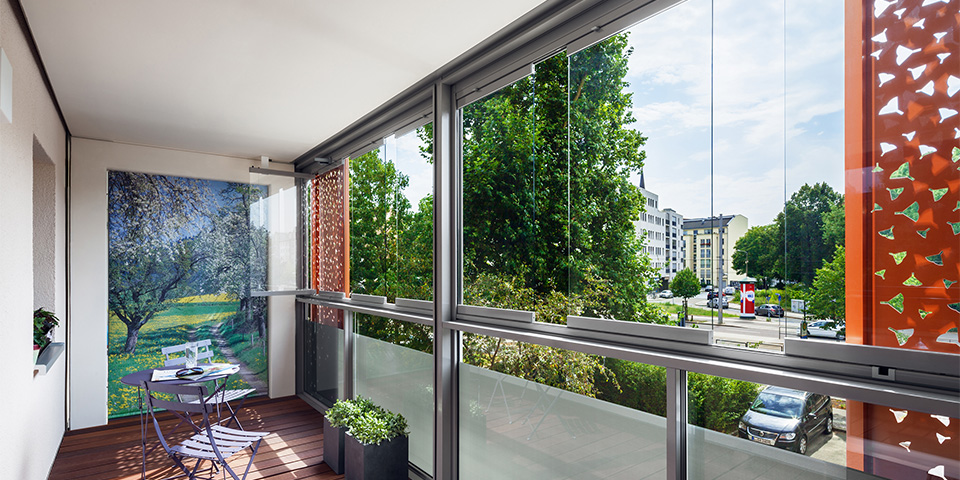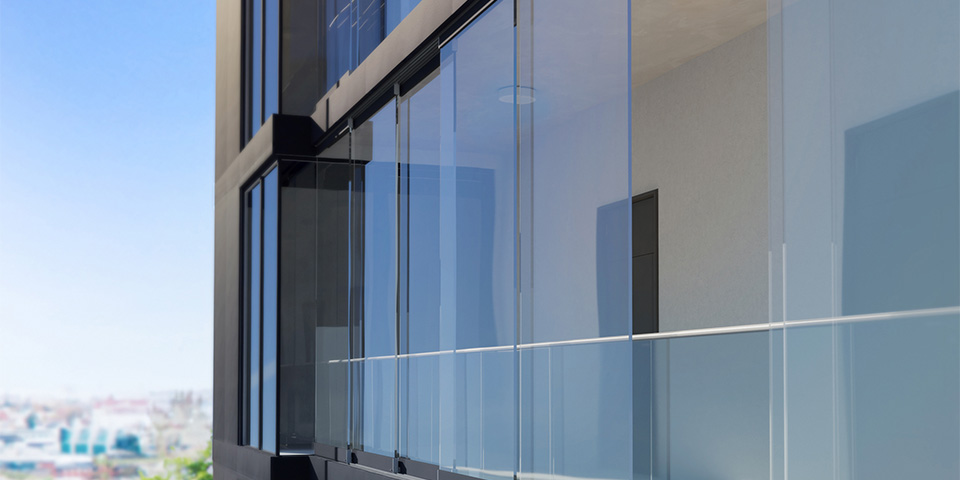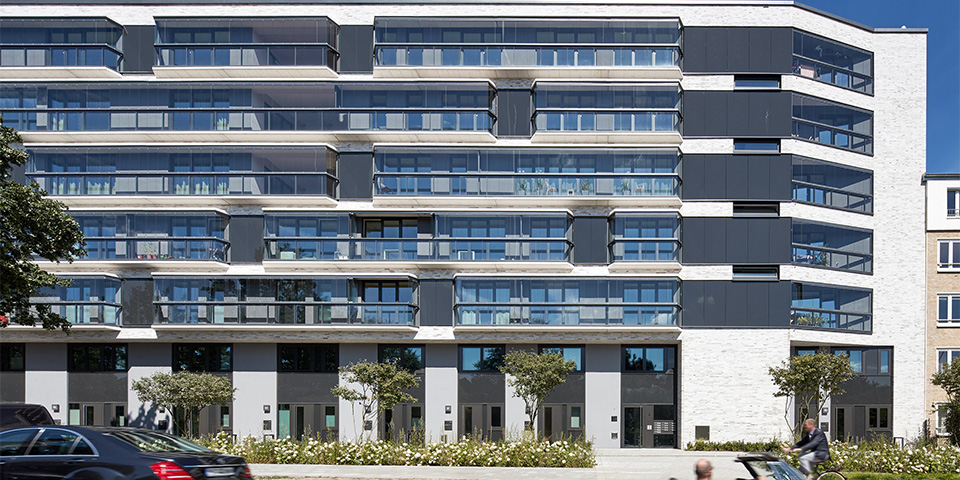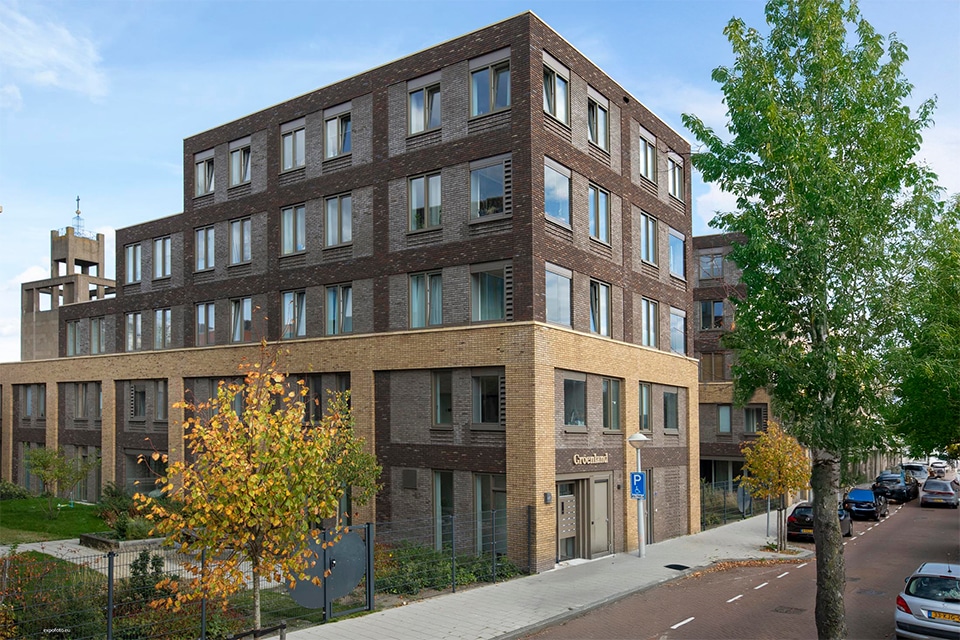
'Balcony glazing offers multi-functional added value'
More and more apartment buildings are being built in the Netherlands. In parallel, the demand for balcony glazing is also growing. And that's not surprising, according to André Jansen, Account Manager at Solarlux Netherlands.
"Indeed, balcony glazing systems give residents the unique opportunity to enjoy their balconies year-round. Whereas uninsulated systems protect the outdoor space from rain, wind and noise, an insulated system can add an extra room to the living space. Implementing this optimally, however, is not easy. Besides the current laws and regulations, we have to deal with specific resident requirements. Our years of knowledge and know-how in the market come in handy here."

Our balcony glazing is very easy to open and close by the resident, allowing for adequate ventilation at all times.
The construction of new apartment buildings in urban areas often clashes with noise standards, Jansen knows. "New homes are often built in compact inner-city areas. These locations usually suffer from excessive noise levels, which means that any balconies or loggias must be shielded from noise in accordance with the Noise Abatement Act. Balcony glazing offers a suitable solution for this."
"However, this glazing affects the ventilation of the underlying thermal shell, to which the Building Code also imposes strict requirements. For example, NEN 7120 requires a permanent ventilation facility on balconies and in conservatory-like structures, with a capacity of at least 3.0 l/s per m² of floor area. To meet this requirement, the balcony may not be completely closed off. However, this again compromises the noise requirements.... A continuous field of tension is the result, about which we prefer to advise at an early project stage."
'Resident comfort is paramount'

More and more apartment buildings are being built in the Netherlands. In parallel, the demand for balcony glazing is also growing. (Image: Aloys Kiefer)
"Discussions regularly arise about the definition of outdoor space, where it is not always clear whether ventilation requirements are met," Jansen believes. "Our balcony glazing is very easy to open and close by the resident, which always allows sufficient ventilation. But unfortunately, current legislation interprets this differently. Indeed, balcony glazing in anno 2019 is seen as a complete closure of the outdoor space and as such does not meet the ventilation requirements set. However, due to the flexibility of our balcony glazing, it does offer great added value for residents. And in our vision, the living comfort of the residents must always come first."
New sliding system for high-rise projects
Solarlux recently introduced a new, hard-glass sliding system for high-rise projects, which optimally meets the wishes and requirements from the market. "Thanks to glass thicknesses of up to 17 mm, our SL23 sliding system is ideally suited for high-rise buildings with additional wind loads," says Jansen.
"The wings can be opened to the left, right or both sides as desired. The pull-out and fall-out protection guarantees optimum safety in high wind loads. And thanks to the stainless steel runners with ball bearings, wing weights of up to 150 kg can be used."
The extra shell increases living comfort for the residents, because the balconies are maximally protected from weather and ambient noise, he says. "In addition, the extra shell forms an insulation buffer, saving significantly on energy costs."




